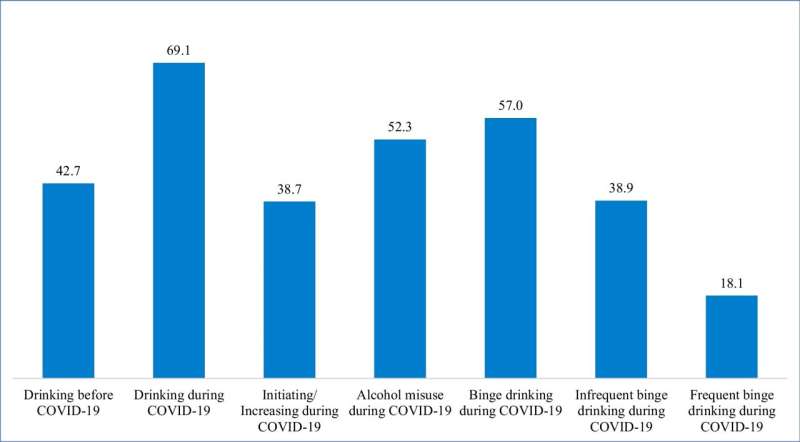This article has been reviewed according to Science X's editorial process and policies. Editors have highlighted the following attributes while ensuring the content's credibility:
fact-checked
trusted source
proofread
Study uncovers substance use patterns, depression and social factors among Harlem residents during COVID-19

A groundbreaking study by CUNY SPH researchers provides valuable insights into the prevalence of substance use, its relationship with depression and the impact of social factors among residents in Harlem during the COVID-19 pandemic.
The study, "Substance Use Patterns and Their Association with Depression and Social Factors during COVID-19 among Harlem Residents in New York City," was led by doctoral student Thinh Vu, in collaboration with faculty members Pedro Mateu-Gelabert, Deborah Levine, Luisa N. Borrell and Victoria K. Ngo. It was published in Journal of Community Health.
In a survey conducted between April and September 2021, over a third of respondents reported using substances and initiating and/or increasing substances both before and during the COVID-19 pandemic. The most common substances used before COVID-19 and initiated/increased during COVID-19 were tobacco, marijuana and e-cigarettes.
The researchers found that residents with mild and moderate symptoms of depression, as well as housing insecurity, had a significantly higher probability of initiating and/or increasing substance use. Conversely, respondents experiencing employment insecurity were less likely to report such patterns. No association was found between substance use initiation and/or increase and food insecurity.
The study emphasizes the urgent need to prioritize mental health support and address underlying social circumstances.
"These findings provide a comprehensive understanding of substance use trends and their impacts," says Vu. "By recognizing the complex interplay between depression, social factors, substance use, and the pandemic, we can develop targeted interventions and culturally sensitive support systems that promote healthier coping strategies during global health crises."
The researchers hope that the insights gained from this study will inform public health initiatives, policies and interventions to better support mental health and combat substance use challenges in Harlem and other similar communities.
Before this publication, the research team also published a paper titled, "Alcohol misuse, binge drinking, and their association with depression severity and perceptions of police during COVID-19 among Harlem residents in New York City," in the Journal of Urban Health.
More information: Thinh T. Vu et al, Substance Use Patterns and Their Association with Depression and Social Factors During COVID-19 Among Harlem Residents in New York City, Journal of Community Health (2023). DOI: 10.1007/s10900-023-01253-1
Thinh T. Vu et al, Alcohol Misuse, Binge Drinking, and their Associations with Psychosocial Factors during COVID-19 among Harlem Residents in New York City, Journal of Urban Health (2023). DOI: 10.1007/s11524-023-00738-7




















